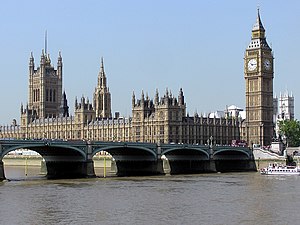 Photo source
Photo sourceIranians are struggling for their rights and we, LGBTQs, are within people. We are active in this battle as citizens of Iran but we do not want to make any problem or additional pressure on our oppressed community.
From a letter to the author by Iranian gay students
Since the declaration of the results of the Iranian Presidential election on June 12 the world has been following what's been termed 'the green revolution' on the streets of Iran's cities.
Much has been written about how women are leading the protests and demands for democracy:
For these wives, mothers, sisters and daughters, their march to oust Iranian President Mahmoud Ahmadinejad has everything to do with their desire for equal rights.
The regime in Iran obviously feels threatened by peaceful female activism. They branded as illegal the One Million Signatures Campaign initiated by women's rights groups in Iran, a campaign to change discriminatory laws against women in that country. Dozens of women involved in the effort have been harassed or jailed by the government.
But there are other, minority, groups suffering in Iran who have bravely joined the protests.
Lesbians and gays suffer severe social disapproval in Iran as in much of the Muslim world (or the Christian, see Uganda or Jamaica) but, as in Iraq and Lebanon, have historically been discreetly tolerated - gay nightclubs existed during the Shah's rule as they did under Saddam's.
Following the Islamic revolution in 1979 they have faced a state which threatens them with death (Iran is one of only a handful of countries where death is the penalty in law for what Iran's version of Sharia law calls 'Lavat') and which uses entrapment and 'morality police'. The regime's homophobic violence has also spilled over into Iraq where Shia death squads hunt gays.

Click image to enlarge map
Over the past ten years Human Rights organisations have documented numerous executions however getting hard information has been clouded by the regime's tactic - aware as they had become of their international image - of using other charges than homosexuality, such as rape.
This is what was alleged in the infamous case of teenagers Mahmoud Asgari and Ayaz Marhoni which produced images whose currency internationally against the regime is as strong as those of Neda, the young women shot by a Basiji militia during the protests on the streets of Tehran.

It is not confirmed that they were in fact gay and information about this and other cases is also clouded by their use by competing exile groups as well as right-wing American groups as propaganda. Nevertheless executions are known to have taken place. The boyfriend of the young Iranian gay asylum seeker Mehdi Kazemi. who eventually won refuge in the UK, was killed by the regime.
The use of rape charges in particular is part of the hypocrisy and violence at the heart of the regime - rape is a tactic they themselves use to suppress and torture:
"It was on Saturday or Sunday that they raped me for the first time. There were three or four huge guys we had not seen before. They came to me and tore my clothes. I tried to resist but two of them laid me on the floor and the third did it. It was done in front of four other detainees.
"My cell mates, especially the older one, tried to console me. They said nobody loses his dignity through such an act. They did it to two other cell mates in the next days. Then it became a routine. We were so weak and beaten up that could not do anything.
"Then the interrogations started again. They said: 'If you don't come to your senses we will send you to Adel Abad [another prison in Shiraz] to the pederasts' section so that you receive such treatment every day.' I was so weak I did not know what to say. Then they asked for my contacts. I told them I had no contacts and I was informed about the demonstrations through the internet."
With the knowledge of what they face if arrested, the bravery of those not only on the streets but those who defy the regime and get word out via the censored and monitored internet is heroic.
All those (and it is around 32000) who have been following one young student on Twitter, Change_for_Iran, have heard first hand about the violent raid on Tehran University dormitories, his going into hiding in the city, his fears for his friends who could not be contacted and then his disappearance then reappearance on Twitter having got himself out of the city.
Gay students from Iran tell me that:
Iranian government is very sensitive about western media and they are monitoring the internet very carefully.
The students contacted me because of a letter which claimed to come from a gay Iranian student organisation which had been circulated by a Toronto, Canada, organisation. It had been quoted in an article I had distributed which was published by the Boston gay magazine Edge but none of them had signed it and they contacted 286 others throughout Iran and none of them had either.
They warned, in a letter signed by 28 named people:
"You will make a big problem for us by publishing this letter especially in this situation that many of students are subject of arrest by Iranian authorities."
The fear comes from the suggestion of the existence of an organisation of gay students. Hossein Alizadeh, of the International Gay and Lesbian Human Rights Commission says that these fears are well-grounded:
"The reality is that gay people are always the easiest target for the government to go after. I’m worried that if there is a crackdown, they will be targeting gay people. LGBTs have a lot to lose if the result of this is that the current government is more entrenched."
Part of the government's crackdown on the 'Green Revolution' has been to, quoting Mahmoud Ahmadinejad, label them "thieves, homosexuals and scumbags".
Yet the irony of this statement, apart from the fact that
Ahmadinejad told an American audience in 2007 that "in Iran we don't have homosexuals like in your country", is that, in the case of gays, they do form part of the opposition.
 'Morality police' assaulting a young man on a Tehran street
'Morality police' assaulting a young man on a Tehran street"The Iranian LGBT community is angry, in addition all minorities. These are the people you see in the streets of Iran," says
Arsham Parsi, of the IRanian Queer Railroad (
IRQR). Like women and young people who face harassment and worse from the regime's morality police they are unhappy with the discrimination and being targeted by the government, he says.
"Enough is enough. They’re going to the street to support the green movement and saying, ’We do exist, we didn’t vote for you and we want our votes back.’"
LGBT activists in the west and their supporters and allies owe it to their incredibly brave brothers and sisters in Iran to do all we can to support the 'Green Revolution'

At a protest outside the London Iranian embassy



![Reblog this post [with Zemanta]](http://img.zemanta.com/reblog_e.png?x-id=d114a1c7-7b50-4873-8ae8-d99afaacb8ce)


![Reblog this post [with Zemanta]](http://img.zemanta.com/reblog_e.png?x-id=fea7a7fd-7871-45be-8ea8-6f117dea7626)

![Reblog this post [with Zemanta]](http://img.zemanta.com/reblog_e.png?x-id=090d15df-e5d1-435d-a422-c082862709c7)




![Reblog this post [with Zemanta]](http://img.zemanta.com/reblog_e.png?x-id=932270ed-a947-49d4-9938-26b5d92a104a)

![Reblog this post [with Zemanta]](http://img.zemanta.com/reblog_e.png?x-id=2394e3c6-4c08-4811-bcc6-9eae418aabc7)


![Reblog this post [with Zemanta]](http://img.zemanta.com/reblog_e.png?x-id=fb437309-9bac-4ea2-ad37-37ec8083a873)

![Reblog this post [with Zemanta]](http://img.zemanta.com/reblog_e.png?x-id=8bddc421-019e-4e21-9fac-4b2fe0ba37c5)

![Reblog this post [with Zemanta]](http://img.zemanta.com/reblog_e.png?x-id=c90cc91f-c22d-4a1c-97db-04041997ff01)






![Reblog this post [with Zemanta]](http://img.zemanta.com/reblog_e.png?x-id=62342d1f-e02e-4840-bd66-55140b273a71)